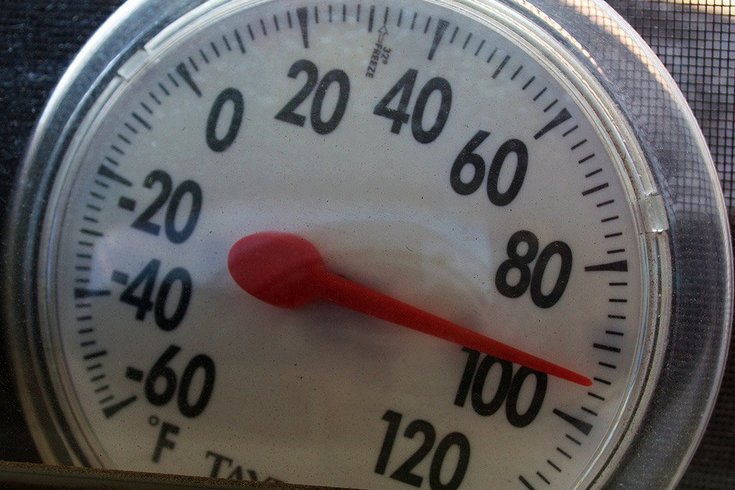
June 20, 2024
 Mr.TinDC/via Flickr Creative Commons, CC by 2.0
Mr.TinDC/via Flickr Creative Commons, CC by 2.0
Research shows that extreme heat can trigger anxiety, irritability and anger, leading to more violent crime.
If your temper is flaring as the temperature has been spiking, you are not alone.
Heat is a "stressor that makes people vulnerable to intense emotions and irritability," which can make people "more apt to engage in impulsive behaviors," said Mark Bingel-McKillips, a licensed clinical social worker with Thriveworks in Philadelphia. He specializes in helping people with behavioral challenges, anger and stress.
When people are excessively cold, they shiver, and when they are excessively hot, they sweat. "In both cases, we seek relief," Bingel-McKillips said. "In both cases, anxiety will increase if we're prevented from seeking relief."
Aggravating matters is the fact that sweating can make people feel uncomfortable. "It's kind of like a domino effect: excessive sweat can lead to feelings of insecurity and shame and secondary emotions such as anger," Bingel-McKillips said.
Craig Anderson, a psychology professor at the Iowa State University, who has studied the effects of heat on violence for decades, has written that "hot temperatures increase aggression by directly increasing feelings of hostility and indirectly increasing aggressive thoughts."
And studies show that assaults, mass shootings and terrorist attacks occur more frequently in the summer and when temperatures rise.
A 2022 study from the Potsdam Institute for Climate Impact Research found that extreme temperatures – hot or cold – increased online hate speech. Analyzing billions of tweets Americans posted on X, formerly known as Twitter, researchers found that temperatures above 86 degrees were consistently linked to increases in online hate across all climate zones and socioeconomic differences such as income, religious beliefs or political preferences. Even in high-income areas, where people could afford air conditioning, researchers observed an increase in hate speech on extremely hot days.
"Our results highlight online hate speech as a new impact channel through which climate change can affect overall societal cohesion and people's mental health," wrote Leonie Wenz, who led the study. "So that means that curbing emissions very rapidly and drastically will not only benefit the outer world. Protecting our climate from excessive global warming is also critical to our mental health."
Bingel-McKillips said some of the people he sees in his practice express significant anxiety about climate change. "Your world is on fire, literally," he said. "A lot of my clients bring up their fear of catastrophe and what is to come."
To cope with the anxiety, irritability and anger that heat waves can induce, people can seek relief in air-conditioned places, whether it is in their homes, public spaces or cooling centers, Bingel-McKillips said. They should stay hydrated and dress in loose, light-colored clothing that does not retain heat.
People also can reduce mood disturbances by "taking charge of what (they're) thinking about and using distraction and trying to reframe the negative to a positive," Bingel-McKillips said.
One technique used in behavioral modification therapy to help people interrupt anxiety and panic attacks is to press bags of ice to their cheeks. This slows the heart rate and takes people out of fight-or-flight mode. "It will trick the brain into thinking it is cooling faster," Bingel-McKillips said.
People who are feeling overwhelmed in the heat or struggling to cope can seek help by calling their doctors or going to the nearest hospital, health experts advise. They also can reach the Suicide and Crisis Lifeline by calling 988.